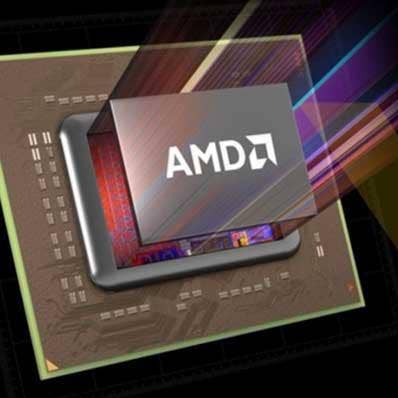AMD Says Ryzen Boost Fix, Optimizations Are Coming Soon
'Following the installation of the latest BIOS update, a consumer running a bursty, single threaded application on a PC with the latest software updates and adequate voltage and thermal headroom should see the maximum boost frequency of their processor,' AMD's Robert Hallock says.

AMD said a forthcoming BIOS update will fix Ryzen 3000 desktop processors that weren't reaching their advertised boost frequencies and provide other optimizations.
Robert Hallock, a senior technical marketing manager at AMD, wrote in a Tuesday blog post that the BIOS update is expected to be available by the beginning of October, depending on the testing and implementation schedules of motherboard vendors.
[Related: AMD's Xbox, PlayStation Work Led To A Big Security Feature In EPYC]
The Santa Clara, Calif.-based company's internal testing shows that the BIOS update can increase boost frequencies by 25-50MHz depending on the workload, system configuration and thermal/cooling solution, but the company is exploring further ways to optimize performance, according to Hallock.
Hallock said it's important that systems have adequate thermal paste, reliable system cooling, the latest motherboard BIOS, reliable BIOS settings, the latest AMD chipset drivers and the most recent operating system to ensure optimal performance. He said AMD's Ryzen processors analyze CPU temperature, socket power, loaded cores, motherboard voltage regulator current and workload intensity to automatically adjust clock frequency within a matter of milliseconds.
"Following the installation of the latest BIOS update, a consumer running a bursty, single threaded application on a PC with the latest software updates and adequate voltage and thermal headroom should see the maximum boost frequency of their processor," he said.
This echoed comments made last week by two AMD partners, Maingear and Velocity Micro, who told CRN that it's important for do-it-yourself PC builders to use proper thermal and cooling solutions to reach advertised boost speeds.
"There's a whole science to building a computer properly," Wallace Santos, CEO of Kenilworth, N.J.-based Maingear said, adding that Maingear's PCs are overengineered with liquid cooling to optimize the performance of the processor and other parts.
AMD first acknowledged the issue last week after some customers began reporting problems with their third-generation Ryzen processors not reaching their advertised boost frequencies. The chipmaker's top rival, Intel, used the customer complaints as an opportunity to question AMD's reliability, but an AMD spokesperson downplayed Intel's remarks while stressing the importance of community feedback and positive reception to Ryzen's July launch.
In his blog post, Hallock emphasized that AMD performs "extensive engineering analysis to develop reliability models and to model the lifetime of our processors before entering mass production." He said the BIOS update — which also addresses issues customers have reported with seeing higher voltages and frequencies when certain background applications are running — is not expected to have an impact on the lifetime of the Ryzen processors.
Beyond that, Hallock said AMD plans to release new software called the AMD Monitoring SDK that will allow users to "build a public monitoring utility that can reliably report a range of key processor metrics in a consistent manner." The SDK, which will be able to call upon more than 30 APIs such as average core voltage and current operating temperature, is planned to launch on Sept. 30.
Hallock said AMD plans to provide future updates on Ryzen processors through blog posts like the one published Tuesday.